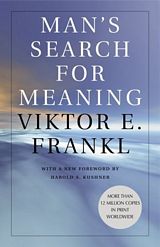.jpg) British psychologist Richard Wiseman’s Luck Factor (2003) explores what makes some people lucky and others unlucky.
British psychologist Richard Wiseman’s Luck Factor (2003) explores what makes some people lucky and others unlucky.
Being lucky is a mindset to bring to life. Lucky people maximize their chances of creating and noticing a lucky opportunity. They listen to their intuition when they get an opportunistic hunch.
The book’s core premise is whether you’re generally lucky or unlucky depends on your attitude—an optimistic mindset is a self-fulfilling prophecy, indeed. Lucky people expect good fortune; they expect good things to happen in their life. When they do have a run of bad luck, they adopt a resilient attitude and somehow turn that into good luck.
Idea for Impact: Lucky people aren’t lucky by sheer accident. To maximize your chances of getting lucky, get more opportunities and feel luckier. Get out there more often, produce more work, and talk to more people. Be open to the world and ready for new opportunities.
.jpg)

.jpg)
 As this blog’s readership grows, popular articles posted in the first half of the year get left behind in my end-of-year list (
As this blog’s readership grows, popular articles posted in the first half of the year get left behind in my end-of-year list (.jpg)
.jpg)
.jpg)

.jpg)
.jpg)
.jpg)
.jpg)
